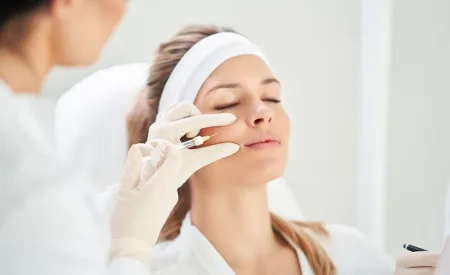Equine veterinarians provide healthcare services for horses. Their expertise extends from routine check-ups to emergency surgeries, making them an integral part of the equine industry. The nature of equine veterinary care exposes veterinarians to unique risks and challenges, such as getting injured by horses. Here is more information about risks and disability insurance for soon to be veterinarians hoping to specialize in equine treatment:
The Unique Risks Equine Veterinarians Face
Equine veterinarians work in a demanding environment where they face risks that can result in physical injuries and illnesses. Working with horses also puts veterinarians at risk of accidents that can compromise their ability to work. Below are some factors that make disability insurance for soon to be veterinarians necessary for vets who work with equines:
Physical Demands
Working with large, powerful animals like horses demands physical strength and stamina. Equine veterinarians often find themselves in situations requiring lifting, restraining, or working in an awkward position. Over time, this can lead to chronic musculoskeletal issues like back pain and carpal tunnel syndrome. These physical demands can increase the risk of injuries.
Accidents and Injuries
When working with animals, there is always a risk of the animal injuring you. The size and strength of horses compound the impact of an injury from these animals. A kick by a horse may result in a fall, fracture, concussion, or other debilitating injuries. Recovery from a severe injury may take months, during which an equine veterinarian may be unable to work.
Zoonotic Diseases
Working with sick horses may expose veterinarians to zoonotic diseases transmitted from animals to humans. Some diseases that equine veterinarians may contract from horses include:
- Dermatophilosis
- West Nile virus
- Leptospirosis
- Tick-borne diseases
Benefits of Disability Insurance for Equine Vets
Given the risks equine veterinarians face in their work, it helps to safeguard their income-earning potential in case of work-related accidents or illnesses. Disability insurance is beneficial for equine veterinarians for the following reasons:
Financial Protection
Disability insurance provides veterinarians with a regular income stream in the event of accidents or prolonged illnesses. The insurance amount awarded may cover medical expenses, utilities, and daily living costs. The insurance payouts provide a safety net, preventing financial distress when veterinarians cannot work due to sickness or injury.
Customized Coverage
Insurance providers may offer policies tailored to the needs of soon-to-be equine veterinarians. You can choose between short and long-term disability coverage and coverage for partial disability. Some insurance providers also offer policies covering specific risks related to practicing equine medicine.
Business Overhead Coverage
If you plan on setting up a personal practice, disability insurance can offer extra protection for your business. Business overhead expense (BOE) disability insurance covers expenses such as rent, utilities, and employee salaries. Your insurance benefits can keep your business afloat while you recover from an accident or illness.
Choosing the Right Disability Insurance for Soon To Be Veterinarians
Choosing the right disability insurance policy requires careful consideration of your risks and financial goals. Considering the factors below also helps you determine the best insurance policy:
Coverage Amount
Determine how much coverage you need to maintain your standard of living in case of a debilitating injury or illness. The higher the coverage amount, the higher your premiums. Evaluate your budget to determine the most cost-effective policy for you.
Policy Details
Before buying an insurance policy, review details like coverage limits, deductibles, and additional endorsements. You also want to know what conditions or situations an insurance policy covers and what it does not cover.
Benefit Period
When buying a disability insurance policy, you can choose between short-term and long-term coverage. Short-term disability insurance coverage may last a few months, and up to a year maximum. If you have long-term disability insurance, it kicks in once your short-term coverage runs out. Choose a long-term insurance policy with a benefit period that fits your financial goals.
Waiting Period
The waiting period is the time between when you become disabled and start receiving benefits and coverage. Choose a disability insurance policy with a waiting period that suits your financial capabilities.
Get Disability Insurance for Equine Veterinarians
Equine veterinarians play a pivotal role in safeguarding the health and well-being of horses. While caring for horses, veterinarians risk injuries and accidents that can keep them from working. To protect their careers and financial futures, soon-to-be veterinarians should prioritize disability insurance. By investing in comprehensive disability insurance, equine veterinarians can focus on their work while establishing their financial security.



